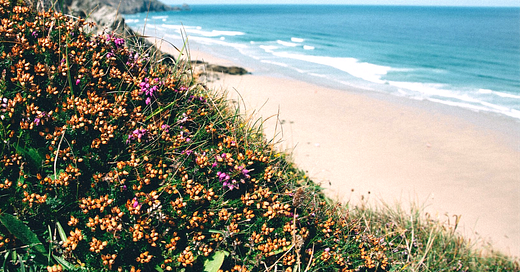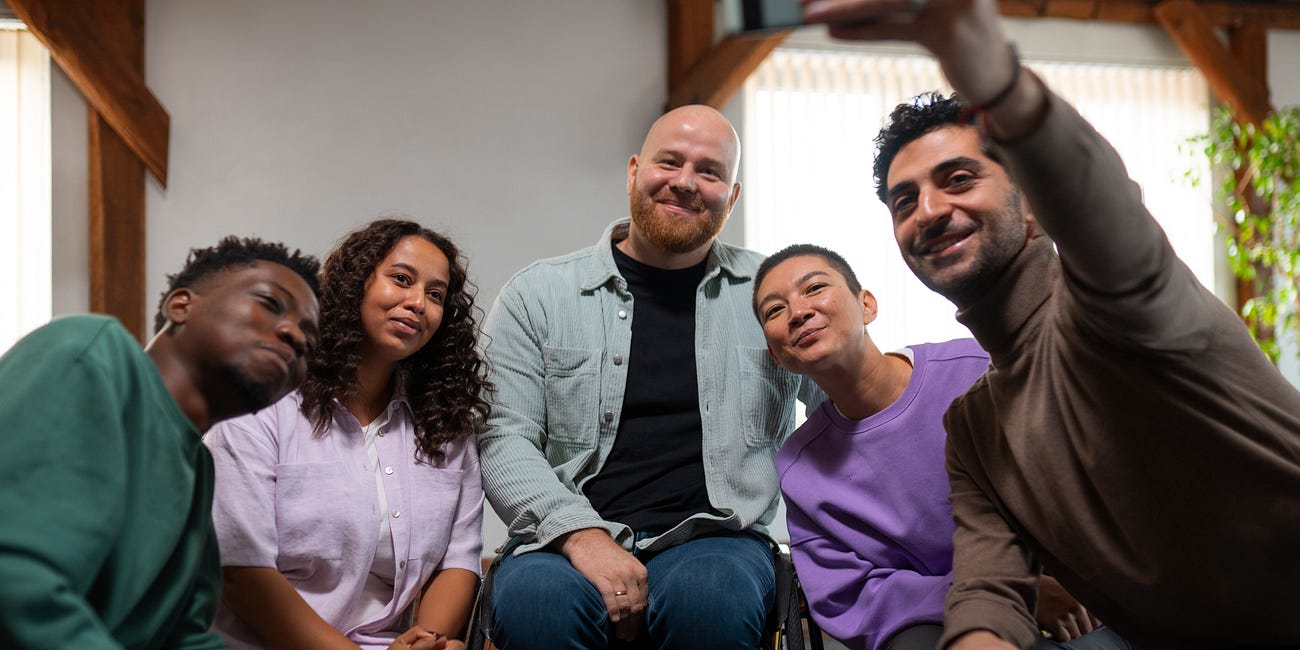Haere mai/welcome to the first newsletter for 2025! I hope everyone reading this has had a good start to the year and was able to enjoy time to relax with friends and whānau over the holiday period.
2025 is shaping up to be another busy year for health, safety, and well-being in Aotearoa New Zealand, especially with the PM highlighting an overhaul of our health and safety legislation as a key strategy plank in supporting economic growth.
“We have to fix our broken health and safety rules” - Christopher Luxon
As ever, a quick plug before the newsletter proper begins. I undertake this mahi on top of my paid work (and unpaid work as a dad of 4!) and my goal is to keep it free and open access for as long as possible. I would greatly appreciate it if you can share this resource among your professional networks, encourage those you know to subscribe, and - of course - like and comment on posts.
News
Last month, I published a piece on how you can start the year in a healthy way. The information in this post gives some - I think! - great advice for individuals and teams to start off on the right foot. Importantly, the start of the year is a chance for teams and businesses to reflect on 2024, set some goals for the year ahead, and agree on how we can prioritise health, safety, and well-being.
Starting the Year in a Healthy Way
Returning to work after a holiday - especially a longer one - can be a tricky process. The so-called ‘post-holiday blues’ can be a difficult time to navigate, with the memories of time relaxing with friends and whānau still fresh in our mind while we wrestle with mahi that can feel like an unconquerable mountain.
Across the Atlantic, some of our American cousins have been making some alarming calls related to diversity, equity, and inclusion or DEI. Initiatives aimed at strengthening and promoting DEI are key to supporting workers’ psychosocial health and well-being, with DEI identified as an important component of mentally healthy work.
My recent post explores the benefits of DEI, some of the challenges and barriers in play, and - importantly - strategies businesses can leverage to support this important mahi.
The Case for Diversity, Equity, and Inclusion
This year, the US has moved against diversity, equity, and inclusion (DEI) efforts, with social media giant Meta ending DEI programmes and returned President Donald Trump removing the same in the military and suggesting diversity is to blame in a recent air tragedy
Earlier this year, the Council of Trade Unions released its annual Mood of the Workforce Survey. Taking the views of more than 1,900 workers across Aotearoa, the survey examined various factors related to working life. For our purposes, some key results include:
In terms of quality of work life in the last 12 months:
43% reported it has become worse in terms of hours worked
46.2% reported it has become worse in terms of work/life balance
41.5% reported it has become worse in terms of access to training/PD
53.6% reported it has become worse in terms of job satisfaction
Related to health and safety, the report’s authors identified some recurring themes, including:
disappointment and dissatisfaction with managers’ practices
frustration with communication from managers, particularly senior leaders
feeling “exploited and undervalued”
experiencing more expectations of completing work in their own time
workload becoming overwhelming
More positively, however, nearly three quarters (73%) indicated they feel they do get to have a say about health and safety at work.
In case you missed it, in the last couple of months of 2024, I published some pieces related to the design of workplaces and its role in workplace health and safety. Parts 1 and 2 of a trilogy of posts looked at:
Look out for the final part, which will focus on interventions to ensure workplaces are designed to support health, safety, and well-being.
In other news…
The team at Working Wise has written a blog post that aligns with my writing on starting the year positively.
In a similar vein, training providers IMPAC have written a piece simplifying health and safety for the new year.
WorkSafe has been investigating a death related to a fall from a scissor lift in late 2024.
Late last year, three companies were sentenced for failing to prioritise safety near overhead electric lines.
An Australian report on the Work, Digital Stress, and Wellbeing Survey has highlighted serious concerns for workers’ mental health in Australian universities. Findings include declining well-being, high rates of burnout, and increased psychosocial risks.
Resources and Tips
Massey University has launched a new micro-credential, the Mentally Healthy Work Practitioner Development Course.
This 50-hour, online course “equips health and safety practitioners with essential skills and knowledge to foster mentally healthy work in their organisations, by better understanding psychosocial risk, as a form of health and safety risk.”
The team at Industrial Safety News has extolled the virtues of meeting over a cup a coffee.
Cafés are classic examples of …neutral spaces where people…can come together to relax, connect, and feel part of a community. Whether it’s catching up with friends, meeting new faces, or just soaking in the vibe, coffee shops give us a place other than home and work where we feel a sense of belonging.
The authors note that meeting with team members, colleagues, or work friends can serve several functions, including building connections, offering an environment to facilitate creativity, breaking down barriers, and simply offering an opportunity for a break.
Australia’s National Mental Health Commission has developed resources designed to support managers and people leaders in leading workers engaged in hybrid work.
The Mentally Healthy Hybrid Work series includes two key guides:
Guide 1 provides “an overview of five hybrid work models and key considerations for each”.
Guide 2 outlines “overarching principles to help establish and design quality hybrid work”.
Quick reference guides for both guides are also available in other languages (Arabic, Mandarin, Cantonese, Greek, Korean and Vietnamese).
DivergenThinking is an organisation from Aotearoa that seeks to educate everyone on how to create a neuro-inclusive, equitable and inclusive world, where everyone belongs. The organisation uses a philosophy of neurodiverse quadrants.
From this model, DivergenThinking has developed a goal-setting resource that provides guidance on different approaches to setting goals based on an individual’s dominant quadrant.
Research
I’ve had very little time to look into research from the last few weeks, but here’s a couple of interesting ones:
A Danish study looked into the development of a hierarchy of controls for psychosocial hazards. Alongside this mahi, authors used the tool qualitatively with nine companies, looking at the efficacy of various interventions. The authors found controls at the lower levels of the hierarchy (e.g., actions taken by individuals or administrative controls), which are shown to be less effective than higher level controls, as the predominant approach.
Ethnographic research from the UK analysed comments on a 2021 ‘TED talk’ video to understand workers’ perceptions of human resource managers’ (HRM) response to staff members’ experiences of bullying. Findings suggested workers have lost trust in HRMs, identifying them as complacent, complicit, and responsible for worsening outcomes.
This cross-sectional study from Italy looked at the effect of obesity and insomnia on productivity. The researchers identified that both conditions result in productivity loss, with obesity having a more marked effect, and demonstrated a negative association between obesity, insomnia, and presenteeism.
German researchers completed a systematic review into the effectiveness of health promotion interventions for industrial, blue-collar workers. While their review showed generally positive results, the authors highlighted a significant bias risk, cautioning against generalising findings from studies.
Researchers from Utah looked at the factors affecting the success of inclusion in the workplace. Working with over 2,000 employees who had participated in inclusion training, the authors identified managers’ and co-workers’ commitment to inclusion as the main predictor for workers supporting inclusion at work.
Events
If you’re looking for professional development opportunities here are some upcoming events.
February
12th - Creating cultures of respect; online workshop, 9.30-11.30am (Diversity Works)
17th - Mental wellbeing at work: Neurodiversity and mental wellbeing; online course, 9.30-10.30am (Business Leaders’ Health and Safety Forum)
19th - Diversity, equity, and inclusion: Management essentials. Online workshop, 9.30-11.30am (Diversity Works)
19th - Professional Practice in Psychological Health and Safety (runs to May 14). Twelve-week online course (FlourishDx).
25th - Tier 2 Leaders’ Health, Safety, and Well-being. Weekly online webinar, 8-8.30am (through to April 25) (Government Health and Safety Lead).
26th - Mitigating unconscious bias in the employee lifecycle. Online workshop, 9.30-11.30am (Diversity Works)
26th - Is linguistic bias lurking in your workplace? Online workshop, 2-3pm (Diversity Works)
27th - Psychosocial safety: Where to start? Online webinar, 2-3pm (FlourishDx).
March
12th - Managing Psychosocial Safety at the Me, We, and Us Level. Online workshop, 2-3pm (Flourish Dx).
18th - Submissions close for exploring a range of options to control risks from engineered stone (MBIE).
27th - Safety Summit 2025. Christchurch (NZ Health and Safety Professionals).
April
1st-3rd - Whiria Ngā Kaha Workplace Inclusion Aotearoa. Conference, Auckland.
4th - Nominations close for entries to the New Zealand Workplace Health and Safety Awards (Safeguard).
May
26-28th - NZOHS Work Related Health Conference, Auckland.
June
5th - Government Health and Safety Lead’s H&S Rep Conference, 9.45am-4.30pm, Wellington.
17th - NZ Workplace Health and Safety Awards Gala dinner, Viaduct Events Centre, Auckland.
Thanks very much for checking out this month’s newsletter; if you have suggestions for more content or you’d like to reach out, please get in touch or engage in the discussion online.
Until next time, be well, be safe, and take care!
Matt






